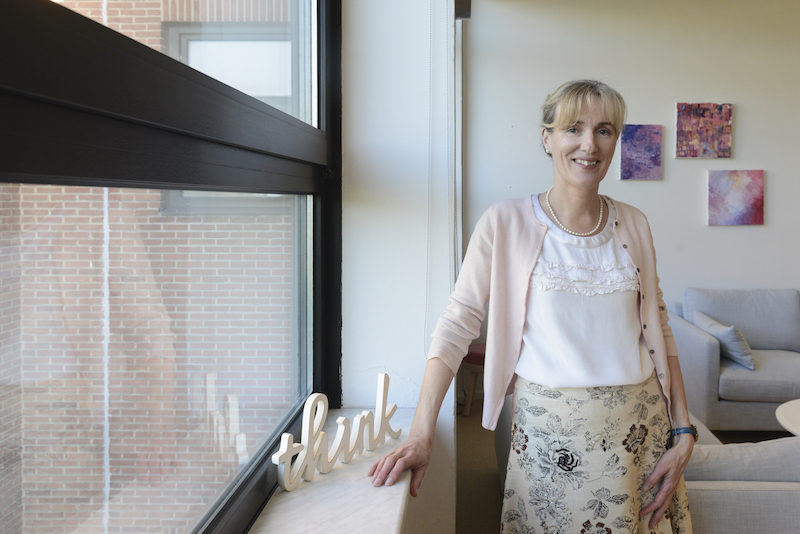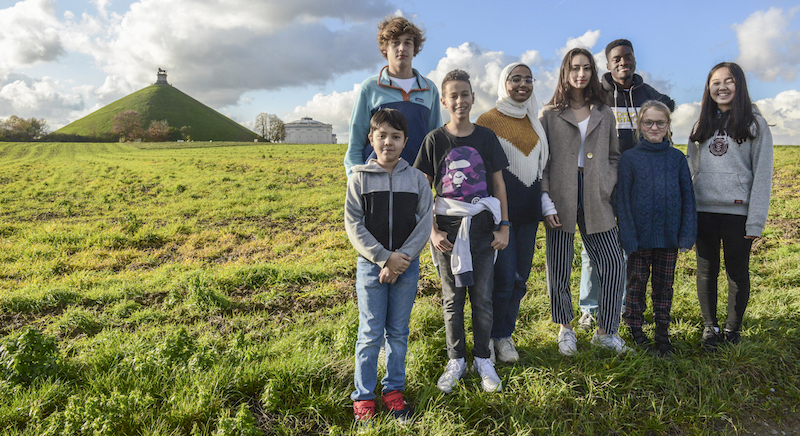IB key to lockdown learning
Posted on 2nd Sep 2020 in International Baccalaureate, School News, Online Learning
The global pandemic that struck the world in 2019 had a huge impact on educational institutions all over the globe. The UNESCO estimated that over 1.5 billion students in 165 countries were out of school due to COVID-19.
The pandemic has forced the global academic community to explore new ways of teaching and learning. At St. John’s International School in Waterloo near Brussels, Belgium, they were ahead of the curve.
We, therefore, sat down with Elaine Purves, Head of St John's International School in Belgium, to discuss their approach, how the IB fits into this picture, and prepares students for a more interconnected and uncertain world of tomorrow.
What new teaching methods have you implemented in order to adapt to the current reality and to make remote learning as effective as possible?
We are always open for learning, so with each new generation, we are constantly evaluating how best to future-proof the curriculum and skills we deliver. We have just had a successful start to the new school year at the end of August. All of our students, who could, have returned to campus, and we have put in place all the necessary steps to maximise safety, optimise learning, and keep students in school. However, should the local or regional situation change, we are also prepared to adapt accordingly. The Covid-19 situation has certainly accelerated the technological shift for students and staff.
Just as for many businesses and organisations, we adapted our technology to suit this new way of interacting. Fortunately, our infrastructure was already in place with MS Teams, Managebac and SeeSaw. Hence, as the pandemic moved closer, we were able to fine-tune our technology, deliver in-house training, learn from other Inspired schools around the world and create a Remote Learning Plan before the national lockdown began.
How have students reacted? How have you continued to engage with them during this period of time?
As digital natives, the leap for our students came with a little more ease, and they have been extremely positive. They have learned a huge amount above and beyond the usual curriculum – new IT skills, enhanced adaptability, communication, and resilience, to name just a few! We know that this has been a challenging time for everyone, and it was hard for students who miss their friends and teachers. Hence, we provided as many opportunities as possible for interaction during the school day, starting the day with their friends in their Advisory or Homeroom class. We kept to our daily schedules as far as possible and did not change the expectations that we usually have in our school day, just moved them online.
Speaking of resilience, how does the International Baccalaureate, which you teach from Grade 1 through to Grade 12, fit into this picture?
The International Baccalaureate prepares our students well for a truly globalised world, harnessing the power of working collaboratively, striving to connect with real-life challenges, and embedding a deep sense of responsibility and community service. The adaptability, empathy and problem-solving skills that the broad curriculum instils are a perfect response to a deep and multi-faceted challenge or crisis. The Covid-19 crisis also made the reality of an interconnected world all the more tangible and this was evident in this year’s Grade 5 PYP Exhibition where students explored real-world challenges and frequently referenced the context of the global pandemic.
In general, digitalisation has been a fact of life for a while now, has that fundamentally changed the way you are teaching at St. John’s?
In a world where so much knowledge is only a mouse-click away, the role of the educator has been changing for a while now and students need to be able to filter and evaluate large quantities of data. The IB programmes are inquiry-based, so it is only natural for students to seek out many sources for information so they can shape their own understanding. Through the IB’s commitment to academic honesty, IB teachers have been teaching research skills explicitly at each phase of the IB curriculum, culminating in the deep-dive Theory of Knowledge course in the Diploma Programme.

More specifically, were there any specific practical challenges to remote learning?
On a practical level, of course, transitioning younger students to an online learning platform was somewhat of a challenge because of the many safety and security measures we had to put in place to protect students. Without the use of emails and individual logins to our platforms, we had to find creative solutions to ensure students could access everything they needed to. The parents have been fantastic in ensuring the students are connected and online when they need to be, and we could not have done this without their ongoing support of the Primary school students. Another big challenge has been implementing the Grade 5 PYP Exhibition; this culminating experience is a collaborative research-based project that all students look forward to at the end of Grade 5. We had to adjust the format of this project to allow all students to participate successfully.
At the Middle and High School level, we gave much consideration to the completion of external and internal exams. For our final year students, they had the challenge of completing coursework elements of their IB qualification post-lockdown, including language orals, the final Art Exhibition, and drama solo performances. As a school, we followed guidance from the IB organisation coupled with tremendous professionalism from our teachers to ensure that the exams were completed with integrity. Our Grade 11 students also sat the US Advanced Placement (AP) exams, which were conducted online. We ran our end-of-year school examinations online, mirroring the approach that many universities have taken around the world this year.
Are there any new initiatives you’ve started that you think you’ll continue even after the crisis?
With the help of the entire community, our students have proven their ability to remote-learn successfully, and we believe this will continue to play an important role in educating future generations, not least as an excellent preparation for university and the workplace. Therefore, we will undoubtedly continue to use our online platforms more often to enhance our teaching and learning once we return to face-to-face teaching and learning. Hopefully, this growth in technology skills, by both the teachers and students, will open the doors to more meaningful technology use in the classrooms moving forward. Of course, we hope that confinement will not be a recurring feature of modern life, but, certainly, we would be even more ready to manage a period of lockdown, should it happen again.
Is there anything special you imparted to this year’s graduating class?
The Class of 2020 will most certainly go down in history not simply for the cancellation of their external written examinations; as individuals and collectively, they have navigated the extraordinary challenges of lockdown with resilience, adaptability and a level of positivity that will stand them in very good stead for the future. We wish them well!
About Elaine
Elaine Purves is Head of School at St John’s International School. In her first international headship, following two previous headships in the UK, one in a traditional British boarding school and the other at a high-achieving girls’ school, she has been transforming the school since her arrival. A linguist by background, Elaine is passionate about the transformative power of education and possesses a deep acumen in both developing and growing schools. She leads with commitment, dedication and vision while warmly embracing the foundational principles of the school.
This article appeared as the foreword to John Catt's Guide to International Schools 2020/21, which you can view in full here: